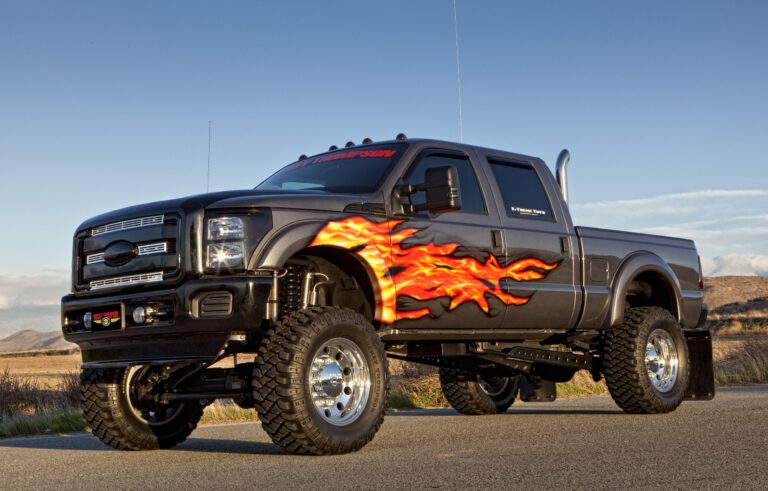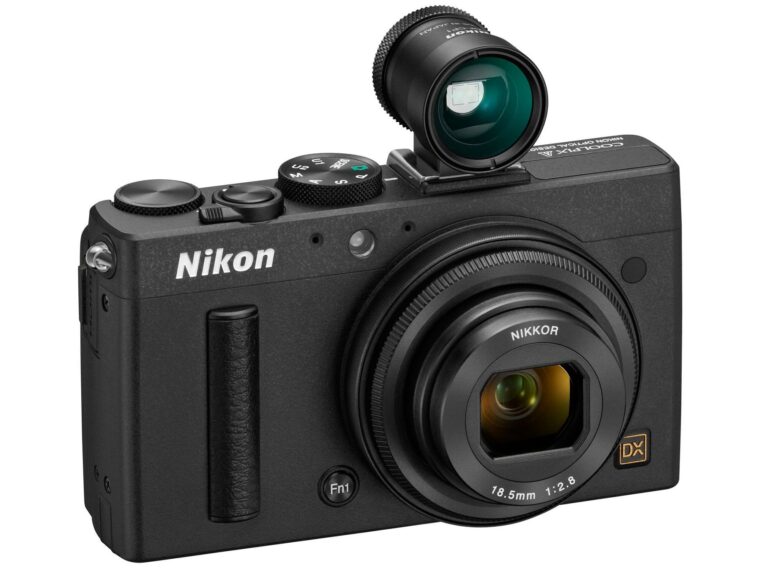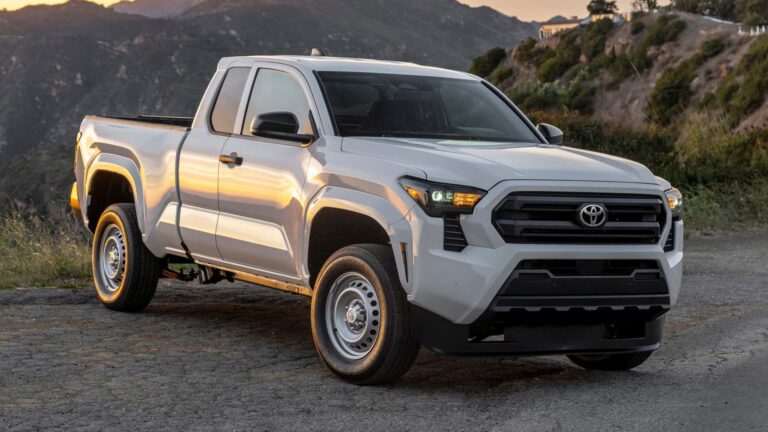Non American Car Brands: A Global Automotive Landscape
Non American Car Brands: A Global Automotive Landscape cars.truckstrend.com
In a world increasingly interconnected, the automotive industry stands as a testament to global innovation, diverse engineering philosophies, and rich cultural heritage. While American car brands like Ford, Chevrolet, and Dodge hold significant sway, the vast majority of the world’s automotive landscape is populated by an incredible array of Non-American Car Brands. These manufacturers, hailing from continents across Europe, Asia, and beyond, have not only shaped the global market but have also pushed the boundaries of technology, design, and performance, offering consumers an unparalleled choice that caters to every conceivable need and desire.
Understanding these non-American powerhouses is crucial for anyone interested in the broader automotive industry, whether you’re a prospective buyer, an enthusiast, or simply curious about the forces driving global commerce. From the meticulous engineering of Germany to the artistic flair of Italy, the unwavering reliability of Japan, and the rapid innovation of South Korea and China, non-American brands represent a mosaic of automotive excellence, each contributing unique characteristics that define their identity and appeal.
Non American Car Brands: A Global Automotive Landscape
The European Powerhouses: Engineering, Luxury, and Passion
Europe has long been a cradle of automotive innovation, home to some of the world’s most iconic and influential car brands. Their contributions range from luxurious grand tourers and high-performance sports cars to practical city vehicles and pioneering electric models.
Germany: Precision, Performance, and Prestige
Germany is synonymous with automotive engineering excellence, a reputation built on precision, innovation, and a relentless pursuit of performance and luxury.
- BMW (Bayerische Motoren Werke AG): Known for its "Ultimate Driving Machine" philosophy, BMW offers a range of sporty sedans, SUVs, and luxury vehicles, emphasizing driving dynamics and sophisticated technology.
- Mercedes-Benz: A pioneer of the automobile, Mercedes-Benz is celebrated for its opulent luxury, cutting-edge technology, and unparalleled comfort across its sedans, SUVs, and high-performance AMG models.
- Audi: Part of the Volkswagen Group, Audi combines sophisticated design with advanced technology, particularly its Quattro all-wheel-drive system, offering a refined and high-tech driving experience.
- Volkswagen (VW): The largest automaker by sales volume globally, VW is known for its diverse range, from the iconic Golf and Beetle to popular SUVs and electric vehicles, emphasizing practicality, quality, and broad appeal.
- Porsche: A legendary sports car manufacturer, Porsche is revered for its performance-oriented vehicles like the 911, Boxster, Cayman, and its successful SUVs (Macan, Cayenne) and electric Taycan, blending everyday usability with track-ready performance.
- Opel (Vauxhall in the UK): Now part of Stellantis, Opel has a long history of producing accessible and practical cars for the mass market, focusing on efficiency and modern design.

Italy: Style, Passion, and Exclusivity
Italian car brands are globally recognized for their breathtaking design, passionate engineering, and a focus on exhilarating performance.
- Ferrari: The epitome of automotive passion, Ferrari builds some of the most desirable and high-performance sports cars and supercars in the world, known for their iconic V8 and V12 engines and racing heritage.
- Lamborghini: Characterized by aggressive, angular designs and immense power, Lamborghini creates uncompromising supercars and hypercars that are statements of extreme performance and luxury.
- Maserati: Offering a blend of luxury, elegance, and sporting performance, Maserati produces high-end sedans, SUVs, and sports cars with distinctive Italian flair.
- Alfa Romeo: With a rich racing history, Alfa Romeo cars are celebrated for their emotive design, engaging driving dynamics, and a unique blend of sportiness and elegance.
- Fiat: Best known for its compact and city cars like the iconic 500, Fiat offers practical and stylish vehicles, often with a focus on urban mobility.
United Kingdom: Heritage, Luxury, and Sporting Prowess
British car brands boast a rich heritage of luxury, craftsmanship, and high-performance motoring.
- Land Rover: Famous for its rugged and luxurious SUVs, Land Rover vehicles are renowned for their off-road capability combined with premium comfort.
- Jaguar: Known for its elegant design and sporty performance, Jaguar produces luxury sedans, sports cars, and SUVs with a distinctive British character.
- Aston Martin: Synonymous with sophistication and power, Aston Martin crafts luxury sports cars and grand tourers, famously associated with James Bond.
- McLaren: A pure performance brand, McLaren builds cutting-edge supercars and hypercars, drawing directly from its successful Formula 1 racing pedigree.
- Rolls-Royce & Bentley: These brands represent the pinnacle of automotive luxury, offering bespoke, handcrafted vehicles for the ultra-wealthy, emphasizing unparalleled comfort, refinement, and exclusivity.
Sweden: Safety, Practicality, and Innovation
Swedish automakers are renowned for their focus on safety, practicality, and thoughtful design.
- Volvo: A global leader in automotive safety technology, Volvo also emphasizes minimalist Scandinavian design, comfort, and increasingly, electrification across its sedan, wagon, and SUV lineup.
- Saab (Historic): Though no longer in production, Saab was famous for its innovative designs, quirky features, and strong emphasis on safety and turbocharged engines.
France: Comfort, Innovation, and Distinctive Design
French brands are known for their comfort-oriented suspensions, innovative interiors, and distinctive, often unconventional, designs.
- Renault: A major global player, Renault offers a wide range of vehicles from compact cars to SUVs, with a strong presence in electric vehicles and a reputation for comfort and practicality.
- Peugeot: Part of Stellantis, Peugeot is known for its stylish designs, engaging driving dynamics, and increasingly, its premium-feeling interiors.
- Citroën: Celebrated for its unique designs, exceptional ride comfort, and innovative features, Citroën often pushes boundaries in automotive aesthetics and ergonomics.
The Asian Innovators and Giants: Reliability, Value, and Future Focus
Asia has emerged as a dominant force in the global automotive industry, particularly through its Japanese and South Korean giants, now joined by rapidly expanding Chinese manufacturers.
Japan: Reliability, Efficiency, and Technological Prowess
Japanese car brands are celebrated worldwide for their exceptional reliability, fuel efficiency, innovative technology, and high resale value.
- Toyota: The world’s largest automaker, Toyota is a leader in hybrid technology and known for its legendary reliability, practicality, and broad range of vehicles from compacts to trucks. Lexus is its luxury division.
- Honda: Renowned for its refined engines and innovative engineering, Honda produces popular cars, SUVs, and minivans, with a strong focus on fuel efficiency and driving enjoyment. Acura is its luxury division.
- Nissan: Offers a diverse lineup including sedans, SUVs, and electric vehicles (like the pioneering Leaf), focusing on practicality, technology, and value. Infiniti is its luxury division.
- Mazda: Known for its "Zoom-Zoom" driving philosophy, Mazda emphasizes engaging driving dynamics, elegant design, and premium interiors across its range.
- Subaru: Famous for its symmetrical all-wheel-drive systems and Boxer engines, Subaru specializes in practical, safe, and adventurous vehicles, particularly SUVs and wagons.
- Suzuki: Primarily focused on compact cars and SUVs, Suzuki offers fuel-efficient and agile vehicles, especially popular in Asian markets.
- Mitsubishi: Known for its SUVs and pickup trucks, Mitsubishi has a history of robust and capable vehicles, though its global passenger car presence has diminished.
South Korea: Rapid Improvement, Value, and Design
South Korean brands have undergone a remarkable transformation, evolving from value-oriented propositions to competitors known for their design, quality, and advanced technology.
- Hyundai: Has rapidly expanded its global footprint, offering a wide range of stylish, feature-rich, and increasingly electrified vehicles, from compacts to SUVs.
- Kia: Sister company to Hyundai, Kia is recognized for its bold designs, competitive pricing, and growing reputation for quality and performance, including a strong EV lineup.
- Genesis: Hyundai’s luxury division, Genesis offers premium sedans and SUVs that rival established German and Japanese luxury brands, focusing on sophisticated design, comfort, and advanced technology.
China: Emerging Powerhouse and EV Leader
China’s automotive industry is experiencing explosive growth, especially in electric vehicles, with domestic brands rapidly gaining market share and global recognition.
- BYD: A global leader in EV production, BYD manufactures a wide range of electric vehicles, from sedans and SUVs to buses and trucks, emphasizing battery technology and vertical integration.
- Geely (and its subsidiaries like Volvo, Polestar, Lotus): A massive conglomerate, Geely owns several international brands and is rapidly developing its own competitive lineup of conventional and electric vehicles.
- SAIC (Shanghai Automotive Industry Corporation): One of China’s largest automakers, SAIC produces vehicles under brands like MG and Maxus, and has joint ventures with foreign manufacturers.
- Nio & Xpeng: These are prominent Chinese EV startups, known for their premium electric vehicles, advanced autonomous driving features, and innovative battery swap technologies.
- Chery & Great Wall Motors: Traditional Chinese automakers that are expanding globally with a focus on SUVs and affordable sedans, increasingly incorporating electric models.
Other Notable Global Players
Beyond the major European and Asian hubs, other nations contribute to the non-American car brand landscape:
- India (Tata Motors, Mahindra): These companies primarily serve their vast domestic market but are expanding globally. Tata Motors owns Jaguar Land Rover, while Mahindra is known for its rugged SUVs and utility vehicles.
- Australia (Holden – historic): While Holden (a subsidiary of GM) ceased local manufacturing and sales, it holds a significant place in Australian automotive history, producing iconic sedans and Utes.
Why Choose Non-American Brands? Practical Advice and Considerations
The sheer diversity of non-American car brands offers compelling reasons for consumers to look beyond domestic options:
- Diversity in Design and Engineering Philosophy: Each region brings a unique approach – German precision, Italian flair, Japanese reliability, Swedish safety, Korean value. This allows consumers to find a vehicle that perfectly aligns with their priorities, whether it’s exhilarating performance, ultimate luxury, robust practicality, or eco-conscious innovation.
- Specialization and Niche Markets: Many non-American brands excel in specific segments. For example, European brands dominate the ultra-luxury and high-performance sports car markets, while Japanese brands are leaders in hybrid technology and efficiency. Chinese brands are rapidly cornering the mass-market EV segment.
- Advanced Technology and Innovation: Many pioneering automotive technologies, from advanced safety systems (Volvo) to efficient hybrid powertrains (Toyota) and cutting-edge EV battery tech (BYD), originated or were perfected by non-American brands.
- Global Appeal and Market Dominance: Non-American brands often command significant market share globally, reflecting their ability to adapt to diverse consumer preferences and regulatory environments.
- Specific Driving Dynamics or Comfort Levels: European cars often prioritize a firmer, more engaging ride, while French cars might lean towards plush comfort. Japanese cars offer a balanced, refined experience. Understanding these nuances can greatly enhance driving satisfaction.
Important Considerations When Buying
While the choice is vast, several factors should guide your decision:
- Availability of Parts and Service: Ensure there’s a robust dealer network and readily available parts in your region, especially for less common or niche imported models.
- Resale Value: Research how different non-American brands and models hold their value in your specific market.
- Local Market Preferences vs. Global Models: Some models are optimized for certain markets (e.g., European-spec vs. Asian-spec). Understand any differences.
- Specific Model Reliability and Common Issues: Utilize independent reviews (e.g., JD Power, Consumer Reports) to assess reliability ratings for specific models.
- Import Duties/Taxes: Be aware of any additional costs if you’re importing a vehicle directly or buying a niche model with limited local distribution.
- Technological Compatibility: Check if infotainment systems, navigation, and connectivity features are fully compatible with local infrastructure and languages.
Challenges and Opportunities for Non-American Brands
Non-American brands face a dynamic landscape. Challenges include intense global competition, adapting to diverse regulatory environments, navigating complex supply chains, and managing brand perception across different cultures. However, immense opportunities lie in the accelerating shift to electric vehicles, the development of autonomous driving technologies, and the expansion into emerging markets. Many non-American brands are at the forefront of these transitions, positioning themselves for continued leadership.
Conclusion
The world of Non-American Car Brands is a vibrant, diverse, and endlessly fascinating tapestry of automotive ingenuity. From the storied traditions of European luxury and performance to the unparalleled reliability of Japanese engineering, the rapid ascent of South Korean design, and the disruptive innovation of Chinese electric vehicles, these brands offer an extraordinary spectrum of choices. They represent the cutting edge of design, technology, and sustainability, constantly pushing the boundaries of what’s possible on four wheels. For any car enthusiast or prospective buyer, exploring this global automotive landscape reveals a wealth of options that are not just vehicles, but reflections of unique cultures, engineering philosophies, and visions for the future of mobility.
Non-American Car Brands: Representative Price Range by Category
This table illustrates typical price ranges for new non-American vehicles across various categories. Prices can vary significantly based on trim level, optional features, region, and market conditions.
| Category | Representative Brands (Non-American) | Typical Price Range (USD) | Key Characteristics |
|---|---|---|---|
| Economy/Compact | Toyota (Corolla), Honda (Civic), Hyundai (Elantra), Kia (Forte), Renault (Clio), Fiat (500) | $18,000 – $30,000 | Fuel-efficient, practical, city-friendly, basic features, reliable daily drivers. |
| Mid-Range Sedan/SUV | Toyota (Camry, RAV4), Honda (CR-V, Accord), Hyundai (Santa Fe), Kia (Telluride), Mazda (CX-5), VW (Tiguan) | $28,000 – $55,000 | Balanced performance, comfortable interiors, advanced safety features, good for families and commuters. |
| Premium/Luxury | BMW (3 Series, X5), Mercedes-Benz (C-Class, GLE), Audi (A4, Q5), Lexus (ES, RX), Genesis (G80), Volvo (XC60) | $45,000 – $120,000 | High-quality materials, advanced infotainment, refined driving experience, strong brand prestige, comfort-focused. |
| Performance/Sports | Porsche (911, Boxster), Ferrari (Roma), Lamborghini (Huracán), McLaren (Artura), Nissan (GT-R), Toyota (Supra) | $70,000 – $500,000+ | High horsepower, precise handling, specialized engineering, iconic designs, often limited production. |
| Electric Vehicles (EVs) | BYD (Atto 3), Nio (ES6), Hyundai (Ioniq 5), Kia (EV6), VW (ID.4), Volvo (C40 Recharge) | $35,000 – $100,000+ | Zero emissions, cutting-edge battery technology, varying ranges, focus on sustainable mobility. |
| Ultra-Luxury | Rolls-Royce (Phantom), Bentley (Flying Spur, Continental GT), Ferrari (SF90 Stradale), Lamborghini (Revuelto) | $350,000 – $1,000,000+ | Bespoke customization, unparalleled craftsmanship, ultimate comfort, exclusive ownership experience. |
Frequently Asked Questions (FAQ) about Non-American Car Brands
Q1: What are the main advantages of buying a non-American car brand?
A1: Advantages include a wider range of design philosophies, specific engineering strengths (e.g., German precision, Japanese reliability), advanced technology (especially in EVs), and diverse driving experiences tailored to different preferences. They also often offer strong value propositions or unique luxury features not found in American counterparts.
Q2: Are non-American cars more expensive to maintain than American cars?
A2: Not necessarily. While some high-end European luxury or performance brands might have higher parts and labor costs, mainstream Japanese and Korean brands often boast excellent reliability and competitive maintenance costs, sometimes even lower than domestic brands. It heavily depends on the specific brand and model.
Q3: Which non-American car brands are known for reliability?
A3: Japanese brands like Toyota, Honda, and Lexus (Toyota’s luxury division) consistently rank highest for reliability. South Korean brands like Hyundai and Kia have also significantly improved their reliability ratings in recent years.
Q4: Are electric vehicles (EVs) from non-American brands readily available?
A4: Absolutely. Many non-American brands are at the forefront of EV development. Volkswagen, Hyundai, Kia, BMW, Mercedes-Benz, Volvo, and Chinese brands like BYD, Nio, and Xpeng offer a rapidly expanding range of competitive and innovative EV models globally.
Q5: How does resale value compare for non-American brands?
A5: Resale value varies widely. Japanese brands like Toyota and Honda generally hold their value exceptionally well. Some premium European brands also maintain strong resale, especially popular models. However, certain niche or less common non-American brands might depreciate faster. Always check specific model resale data for your region.
Q6: Is it harder to find parts or service for non-American cars in the US?
A6: For major non-American brands with established dealer networks (e.g., Toyota, Honda, BMW, Mercedes-Benz, Hyundai, Kia), parts and service are just as accessible as for American brands. For very rare or niche imported models, parts might need to be ordered internationally, potentially increasing wait times and costs.
Q7: Are non-American cars always smaller than American cars?
A7: No. While many non-American brands excel in compact and subcompact segments, they also produce full-size sedans, large SUVs, and even pickup trucks that are comparable in size to their American counterparts. Examples include the Toyota Highlander, Mercedes-Benz GLS, BMW X7, and Kia Telluride.




